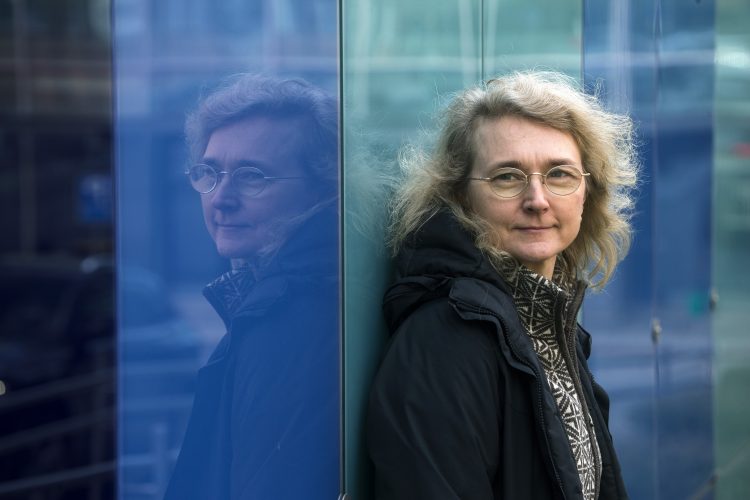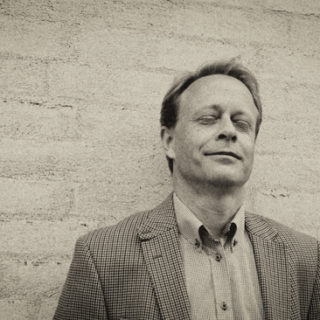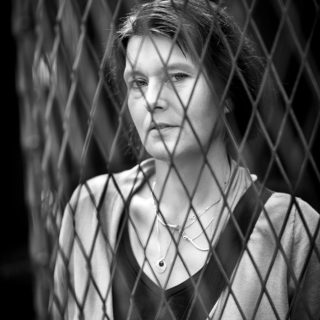The day Pia Dellson’s brain refused to carry on
Pia Dellson is an oncologist and psychiatrist with personal experience of burnout. In late 2012 she had a breakdown and suddenly could not cope with anything. She considers that she “broke her brain”.
“When you break a leg there is nothing you can do except rest the leg and wait for it to heal. It’s a similar thing with a ‘broken brain’. The only thing that helps is time, and being careful not to overload when you are recovering”, she says.
Patients with a severe illness often hope that treatment will restore them to exactly how they were before. However, cancer or a heart attack leave their mark on both body and soul, and the same applies to burnout.
“You shouldn’t expect to be able to do what you did before – and if you try, you will definitely burn out again!” explains Pia Dellson.
She has changed her own work situation in order to avoid entering the risk zone again. From having worked considerably more than full-time, she now works four days at the cancer clinic in Lund and has one day for her own work when she writes, lectures and holds communication courses. She has been forced to give up research – there is no time for it in a reasonable working week.
In the first few weeks after Pia Dellson “broke her brain” she hardly got out of bed during the day. Her brain seemed to have fragmented into a thousand pieces and she could not cope with anything, physically or mentally.
As a general rule, it is said that the recovery period is as long as it has taken to build up the harmful overload, and she considers that to be true.
“When I think back, I realise that I had not really felt fighting fit for almost two years. And that was roughly the amount of time that I needed for my recovery.”
“I thought in some way that me and my brain were the same thing.”
With everything that we know today about chronic fatigue syndrome, and all the cautionary examples that exist, why do people still burn out? Why have we not learned from experience? Pia Dellson believes the answer is on three levels.
“On an individual level we want to be energetic and efficient in what we do. On an organisational level we have a working life that requires high performance. And on a societal level we have an idealised image that successful people constantly juggle many aspects of their lives. On all levels there is insufficient time for rest and recovery”, she says.
One warning sign is that you do not feel rested, even after a leisurely weekend or a holiday. Another sign is the onset of physical symptoms such as stomach pains, high blood pressure, headaches or muscle tension in the shoulders.
However, being aware of the problem is of little help unless awareness leads to action. As a psychiatrist, Pia Dellson is familiar with the burnout phenomenon, and also realised that her tiredness was not really normal. Even so, she carried on right up until the breakdown.
“I thought in some way that me and my brain were the same thing – that my brain could do whatever I wanted to do. But, that’s not the way you think about other parts of your body. Perhaps I would like to run a marathon, but if my knees are not up to it, I realise of course that it cannot be done!”
In her book “Väggen – en utbränd psykiaters noteringar” (The Wall: notes from a burned out psychiatrist) she has written poetry to describe her thoughts and feelings after the breakdown.
“You should listen to your body and I have done that
But I haven’t allowed what it said to stop me”
The lines above are from the book. This is how she and many others have behaved, ignoring all the warning signs and continuing until they burned out.
“I usually call the texts documentary poems or medicinal poetry. Writing poetry helped me to work through my feelings and understand the course of the condition”, says Pia Dellson.
Text: Ingela Björck
Photo: Roger Lundholm
Facts
-
Pia Dellson on tiredness, chronic fatigue and depression
-
Tiredness is something you can recover from if you rest for a sufficiently long time. It is an unpleasant condition, but it is not an illness. Chronic fatigue is an illness and is characterised by the fact that rest does not help – the body’s batteries are completely depleted. Depression can often follow on from chronic fatigue, when the situation feels hopeless and miserable.
“I usually ask patients if they feel like doing something. A person with chronic fatigue says ‘Of course, but I’m unable to!’ whereas a person suffering from depression says that they don’t feel like doing anything at all”, says Pia Dellson.
“If the person in question suffers from both conditions, depression can be treated with anti-depressive drugs. But in order to deal with burnout, the person must change their life situation, so that gradually their batteries can start recharging”, says Pia Dellson, a consultant at Skåne University Hospital.






